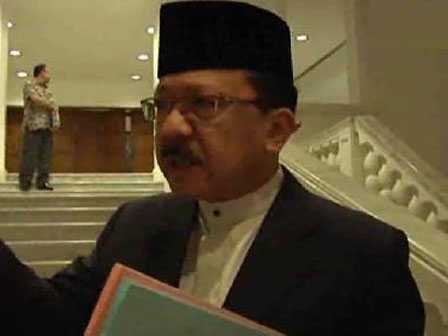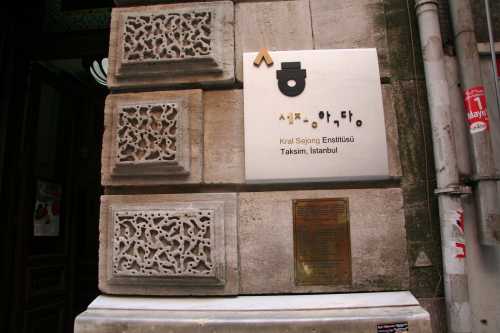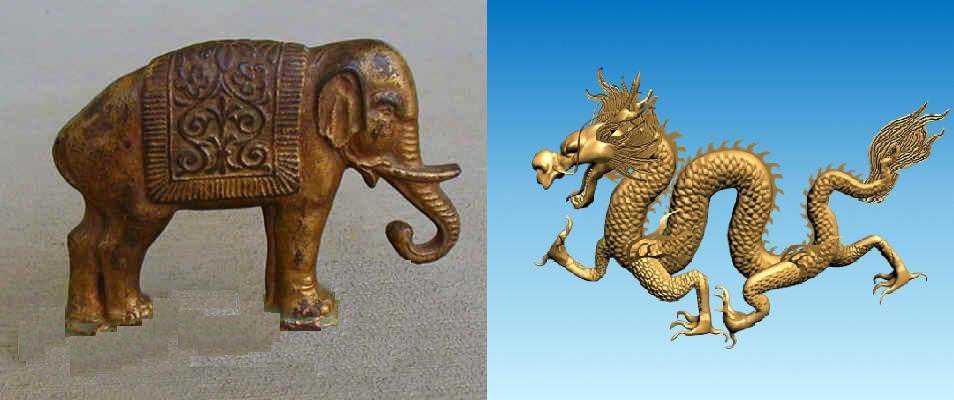
Category: Asia and Pacific
-

The Afghanistan Withdrawal Creates A Complex Diplomatic Dynamic
Three blasts struck Mumbai, India’s financial hub, Wednesday, killing at least 21 people and injuring more than 100 others. The attacks took place on the same day Lt. Gen. Ahmed Shuja Pasha, head of Pakistan’s foreign intelligence service, the Inter-Services Intelligence (ISI) directorate, was in Washington on an unannounced visit. These two developments come a day before the head of Afghanistan’s High Peace Council (which is supposed to lead talks with the Taliban), Burhanuddin Rabbani, is due to visit the Indian capital.“With these state actors locked in a difficult dynamic, Islamist militant non-state actors allied with al Qaeda are trying to act as spoilers to U.S.-led regional efforts.”These three seemingly disparate events are important in the frame of the U.S. strategy to withdraw NATO forces from Afghanistan. The withdrawal of Western forces from the southwest Asian nation requires the United States to maintain a difficult triangular balance between Afghanistan, Pakistan, and India. The United States and Pakistan must reconcile their differences on how to bring closure to the longest war in American history. The decades-old conflict between India and Pakistan also cannot be allowed to cloud the Western calculus for Afghanistan.With these state actors locked in a difficult dynamic, Islamist militant non-state actors allied with al Qaeda are trying to act as spoilers to U.S.-led regional efforts. For al Qaeda and its South Asian allies, disrupting the American strategy is not only a means of countering their own existential issues but an opportunity to ensure that they can enhance their stature after Western forces pull out from Afghanistan. It is not clear whether Wednesday’s attacks were the work of al Qaeda-linked elements or local Indian Islamist militants. Nevertheless, the global jihadist network knows that the surest path toward their goals is reached by having Pakistan-based militants stage terrorist attacks in India, triggering an Indo-Pakistani conflict.Washington, even as it tries to prevent such a scenario, must manage its unprecedented bilateral tensions with Pakistan. Washington and Islamabad should be jointly formulating an arrangement for post-NATO Afghanistan. However, this is not happening, at least not yet. The Obama administration is caught between the pragmatic need to work with Pakistan to achieve its goals in Afghanistan and idealistic ambitions of effecting a change in the Pakistani security establishment’s attitude toward Islamist militant proxies.The ISI chief’s visit to Washington is an attempt by Pakistan to clear up misunderstandings and to try to get the Americans to appreciate the view from Islamabad. Pakistan does not want a Western exit from Afghanistan that exacerbates the jihadist insurgency within Pakistan’s borders.While the Pakistanis work to sort out their problems with the Americans, India is concerned about its own regional security in post-NATO Afghanistan. Rabbani’s visit to the Indian capital is an important part of New Delhi’s efforts in this regard. Rabbani is the former Afghan president whose presidency was toppled when the Taliban captured Kabul in 1996 and he is the most senior leader of the country’s largest ethnic minority, the Tajiks. The Tajiks have long opposed Pakistan’s backing of Pashtun forces, the Talibs in particular. Although Rabbani recently paid an extensive visit to Pakistan in an effort to facilitate peace talks between Kabul and the Taliban, he remains closer to the Indians than to the Pakistanis.For this reason, Rabbani’s trip to New Delhi will be of concern to Islamabad. The Pakistanis hope that what they perceive as a disproportionate amount of Indian influence in Afghanistan will sink to manageable levels after NATO forces leave. Conversely, India does not want to lose the leverage it has built over the past decade in Afghanistan.Therefore, a three-way relationship exists that needs to find its natural balance. Such an equilibrium cannot just be conducive to a NATO withdrawal from Afghanistan; it must also prevent a regional conflagration after the U.S.-led Western troops have departed. -

China, Russia invited to Libya talks in Istanbul
ANKARA — Turkey has invited China and Russia to join for the first time discussions on Libya as part of a contact group of major powers, to convene this week in Istanbul, a Turkish official said.
“Russia and China have been invited as permanent members of the UN Security Council. We think they will participate but no information has reached us so far on what level,” foreign ministry spokesman Selcuk Unal told reporters.
The so-called International Contact Group on Libya, scheduled to meet on Friday in Istanbul, includes the countries participating in the Nato-led campaign targeting Muammar Gadhafi’s regime and regional players.
Russia abstained from a vote on a Security Council resolution in March that opened the way for international involvement in Libya and has since criticised the scale and intent of the Nato-led strikes.
China, for his part, had maintained a policy of non-interference in the conflict, but has appeared more involved recently and its officials have met several times with Libyan opposition representatives.
Along with US Secretary of State Hillary Clinton, the foreign ministers of Australia, Bahrain, Britain, Bulgaria, Canada, Denmark, France, Italy, Malta, Morocco, the Netherlands, Poland and the UAE have confirmed their participation in the Istanbul meeting, Unal said. — AFP
-

Istanbul Bus Rapid Transit Attracts Jakarta
BERITAJAKARTA.COM — 7/8/2011 8:15:11 PM
 Jakarta capital city government is about to cooperate with Istanbul government, Turkey related to bus rapid transit (BRT) development in order to complete city transportation system. As planned before, control system and traffic management will be discussed during a meeting.
Jakarta capital city government is about to cooperate with Istanbul government, Turkey related to bus rapid transit (BRT) development in order to complete city transportation system. As planned before, control system and traffic management will be discussed during a meeting.Jakarta Governor Fauzi Bowo said Istanbul has already succeed implementing low cost-effective traffic management control system. It is hoped similar system can be applied here.
“Istanbul installed many cameras and monitored with self-development software. We`ll review the system further to be applied here,” he said at City Hall, Friday (7/8).
Bowo realized Jakarta has different traffic condition with Istanbul. BRT in Istanbul has been organized well and able to connect both European and Asian Istanbul. It also carries huge number of passengers by using articulated buses.
“They have less traffic jam since separators are fenced. The system is using multiple articulated bus and able to go with high speed,” he added.
According to him, society discipline must be improved before applying the system in Jakarta.
“We have to improve society discipline to avoid them using special bus lane such as Transjakarta bus lane,” he expressed.
Translator: adi
via BeritaJakarta.com.
-

Demand for Korean language classes rises as Turks discover hallyu
ISTANBUL ― At many K-pop fan group and Korea-related community meetings in Turkey, it is not difficult to find young Turkish people speaking Korean phrases.

Most of the Korean-speaking youngsters are self-taught: using Internet sites that teach Korean or learning by watching Korean dramas and picking up words and phrases.
With the number of fans of Korean dramas and K-pop quickly growing, so has the demand for Korean language classes.
“We noticed the rising interest in Korean language two to three years ago,” said Kim Gun-su, manager of King Sejong Institute’s Istanbul branch. The Korean Culture and Information Service currently operates two King Sejong Institutes, Korean language schools, in Turkey ― one in Istanbul and another in Ankara ― at language institutes operated by Ankara University. The Korean government would like to expand the school to a total of 12 throughout the country.
At the Istanbul branch, which opened its doors in January 2011, 33 students are learning Korean at three different levels. The classes are taught by three Korean teachers who are long-term residents of Turkey who also have more than 20 years of teaching experience in Korea. Each term lasts 48 hours with two three-hour classes each week.
“We are using a combination of different textbooks to find one that is most suitable for Turkish-speaking people,” said Kim. “The problem with these textbooks is that they were created for foreigners living in Korea. We need textbooks designed for foreigners living outside Korea,” he explained.
While most Korean language classes in Korea are taught completely in Korean, here, grammar is explained briefly in Turkish before extensive drills take place.
The students range from teenagers to those in their 30s. “About half of them are interested in Korean culture, about 30 percent wish to work in Korean companies and some 15 percent are preparing to study at college level in Korea,” Kim explained.
At a class that has been learning Korean for six months, students speak in clear Korean. “Turkish language is similar to Korean,” says Havva Mizrak who first learned Korean on the Internet and through K-pop. Others have learnt Korean through Arirang TV’s “Let’s Learn Korean.” Another student said, “College studies are difficult but Korean lessons are okay,” in fluent Korean.
While the students found pronunciation to be the most difficult aspect of learning Korean, they generally make quick progress. “I expect that they will be able to complete intermediate level classes after the first year,” said Kim.
Since the goal of the King Sejong Institute is to promote Korean language as widely as possible, the school offers discounted tuition for school students, Korea-related fan club administrators and people engaged in providing Turkish subtitles to Korean dramas and films.
Mehtap Gatar, a junior majoring in international relations at Istanbul University, who has been studying Korean for six months at the King Sejong Institute, will soon be leaving for Korea where she will spend a year as an exchange student at University of Seoul. She is the first King Sejong Institute student to be going to Korea to study. She expects to take five courses taught in English and Korean language classes. “I want to learn the culture of Korea. And I want to be a bridge between Korea and Turkey,” Gatar said.
By Kim Hoo-ran, Korea Herald correspondent (khooran@heraldm.com)
via .
-

India, Turkey navy wargames begin
New Delhi, July 6 (IANS) Indian and Turkish navies will embark on a two-day major war game in the Arabian Sea off Mumbai beginning Sunday, when four warships from each side will match their sea battle skills, an Indian Navy officer said Wednesday.
The four Turkish warships that will join the exercise are scheduled to make a port call in Mumbai Thursday, reaching here from Karachi port in Pakistan where they had docked a week earlier.
Frigates TCG (Turkish Republic Ship) Barbaros, TCG Gelibolu, and TCG Gemlik, supported by a fleet tanker TCG YBK Gungor will be the Turkish ensemble for the war game, the officer said.
Incidentally, Barbaros runs on the same engine as that of India’s latest indigenous stealth frigate INS Shivalik that was commissioned last year in Mumbai. The other two Turkish frigates are of the Gabya class.
The warships are in India in the last leg of their Indian Ocean deployment and this Turkish Naval Task Group is headed by Rear Admiral A. Sinan Ertugrul.
Indian Navy will be represented in the drill by INS Mumbai, a Delhi-class guided missile destroyer, INS Betwa and INS Brahmaputra, both Beas-class frigates, and a Shishukumar-class HDW diesel-electric submarine. The air element in the exercise will be an Indian Navy Dornier maritime patrol aircraft, the officer said.
‘The exercise will include anti-submarine warfare, coordinated strike and interdiction drills, besides other manoeuvres in the seas that are expected to be fairly rough,’ he added.
The Turkish Navy, which is part of the anti-piracy Nato-sponsored Combined Task Force-151, has led the mission a number of times. A Turkish navy frigate TCG Giresun was recently part of a joint effort with Indian Navy Dornier aircraft in thwarting a pirate attack on a Chinese-owned bulk carrier MV Full City in the Arabian Sea in the first week of May.
Indian Navy chief Admiral Nirmal Verma was in Turkey from June 13 to 16, while the Indian Air Force chief Air Chief Marshal P.V. Naik was there in April 2010. Turkish Naval Forces commander Admiral Esref Yugur Yigit visited India in December 2010 on a reciprocal visit.
Turkey has a fairly respectable naval ship-building industry and India sees a possibility of mutual cooperation in this area.
via India, Turkey navy wargames begin Sunday News.
-

Azerbaijan’s bank opens a representative office in Istanbul and announces office opening in Moscow and Dubai
Azerbaijan’s bank opens a representative office in Istanbul and announces office opening in Moscow and Dubai
Baku, Fineko/abc.az. Texnikabank OJSC continues its network expansion in accordance with the strategic development plan.
The Bank reports that taking into account close relationships between Turkey and Azerbaijan, as well as broad trade turnover between the two countries, Texnikabank has become the first out of Azerbaijani banks which opened a representative office in Istanbul, Turkey. It operates in an office building at: Gümüş suyu İnönü Cad № 24, Öməravni məhəlləsi Bəyoğlu İstanbul.
“The opening of the Turkish office creates conditions for closer cooperation with Turkish banks and more opportunities in the area of financial transactions. Texnikabank offers its products to companies operating on the markets of Azerbaijan and Turkey, and renders all kinds of banking services,” the Bank says.
The strategic plan priority is to expand structural units of the Bank.
“Besides the Turkish markets, we are planning to appear at two more banking markets – Russia and the UAE – and, consequently, open representative offices in Moscow and Dubai,” Texnikabank informed.
Texnikabank OJSC was founded in 1993, and due to the main indicators is now in TOP 5 of the banking sector.
via Azerbaijan Business Center – Azerbaijan’s bank opens a representative office in Istanbul and announces office opening in Moscow and Dubai.
